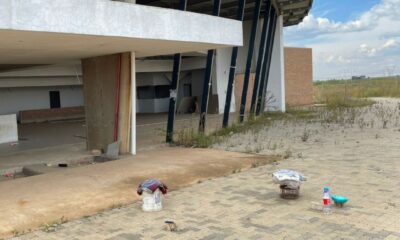News
Residents hit back: Joburg’s billing crisis boils over as courts lose patience

“Paying customers are being treated like criminals”
Johannesburg’s billing crisis has reached a point where residents aren’t just complaining to call centres anymorethey’re fighting the city in court. And in case after case, judges are starting to lose patience with a municipality that seems unable, or unwilling, to get its house in order.
From bills running into the millions to unlawful disconnections, residents and businesses say they’re being punished for a system that simply doesn’t work. For some, the stakes are existential: one property owner received a R26 million invoice, supposedly for “unbilled” electricity. Others have had their lights and water cut despite existing court orders protecting them.
“It’s criminalisation of paying customers,” says attorney Chantelle Gladwin, who has spent nearly two decades fighting municipal billing disputes. “The city’s systems are not fit for purpose. Until that changes, residents will keep suffering.”
Collection shortfall exposes a broken system
At the Johannesburg Crisis Alliance summit, Khule Duma from the Presidential Working Group spelled out the cold numbers: revenue collection is sitting at just 82%, well below National Treasury’s benchmark of 95%.
That shortfall isn’t just an accounting errorit translates directly into potholes unfixed, water outages unresolved, and power cuts that drag on for days. In response, the City of Joburg has doubled down on aggressive collection tactics, often with devastating results for ordinary people.
Residents report that queries are auto-closed after 30 days, even when nothing has been resolved. Different city systems don’t “speak” to each other, meaning the disconnection department often has no idea when a dispute is pending.
Worse, there are persistent allegations of contractors demanding bribes to delay cut-offs. For ratepayers already stretched thin, this deepens the sense that the system is rigged against them.
Courtroom battles expose systemic rot
Recent cases illustrate just how far the rot has spread:
-
The guesthouse in limbo: A property rezoned legally as a guesthouse was suddenly reclassified years later as “business use,” leading to R250,000 in backdated charges. Even after the court ordered a rebill, the city went ahead and disconnected the property five times. Contempt proceedings are now underway.
-
The Tarica family: Burdened with decades-old charges and a faulty meter, their account remained in the name of a deceased relative. A court interdicted disconnections, but the city still tried to argue the order was vague. The judge snapped back, correcting the order under Rule 42 and slamming the city’s conduct.
-
Geranium Mansions: Residents of a block were cut off after just two days’ noticedespite the city’s own rule requiring seven. The high court declared the termination unlawful, ordered reconnection within 24 hours, and issued a punitive costs order, calling the city’s actions an “abuse of power.”
-
The R26 million bill: In one of the most infamous cases, a single bill arrived for R26 million. An urgent interdict stopped the disconnection, and eventually, the city admitted the meter couldn’t even be traced.
-
Trustees v City of Joburg: A landmark ruling confirmed that as long as current charges are paid, services can’t be cut off while arrears are disputed.
These cases build on the Constitutional Court’s Joseph ruling, which requires notice and fair process before disconnections. Yet the city continues to sidestep the law, rebranding cut-offs as “illegal connection removals,” where notice supposedly isn’t required.
Residents push back, but will it matter?
On the ground, frustration is boiling over. Social media is filled with horror stories of pensioners facing bills larger than their life savings, or businesses unable to operate after sudden, unlawful cut-offs.
“Every month it’s a new nightmare,” one resident wrote on Facebook. “You spend hours in queues, log queries that go nowhere, and then one Friday afternoon your power is cut. It’s like living in permanent crisis mode.”
Yet there may be glimmers of hope. Gladwin notes that, in recent months, city officials have shown a new willingness to engage. Task teams have been set up under the President’s Working Group, and both Joburg Water and City Power have taken over their own billing from the city’s revenue department.
City Power has already started a city-wide meter audit, while Joburg Water promises faster responses and more direct communication. Whether this is the start of real changeor just another empty promiseremains to be seen.
A city at a crossroads
Joburg’s billing crisis isn’t just about money. It’s about trust. When residents who pay diligently are treated like defaulters, the social contract breaks down. When the city ignores court orders, the rule of law itself is undermined.
For now, judges are drawing the line, reminding the municipality that even the most cash-strapped city can’t bully its residents into submission.
But until systemic reforms take root, ordinary Joburgers will continue to live with the constant fear of the next shock bill or the knock on the door that cuts off their lights, water, and dignity.
{Source: The Citizen}
Follow Joburg ETC on Facebook, Twitter , TikTok and Instagram
For more News in Johannesburg, visit joburgetc.com



























